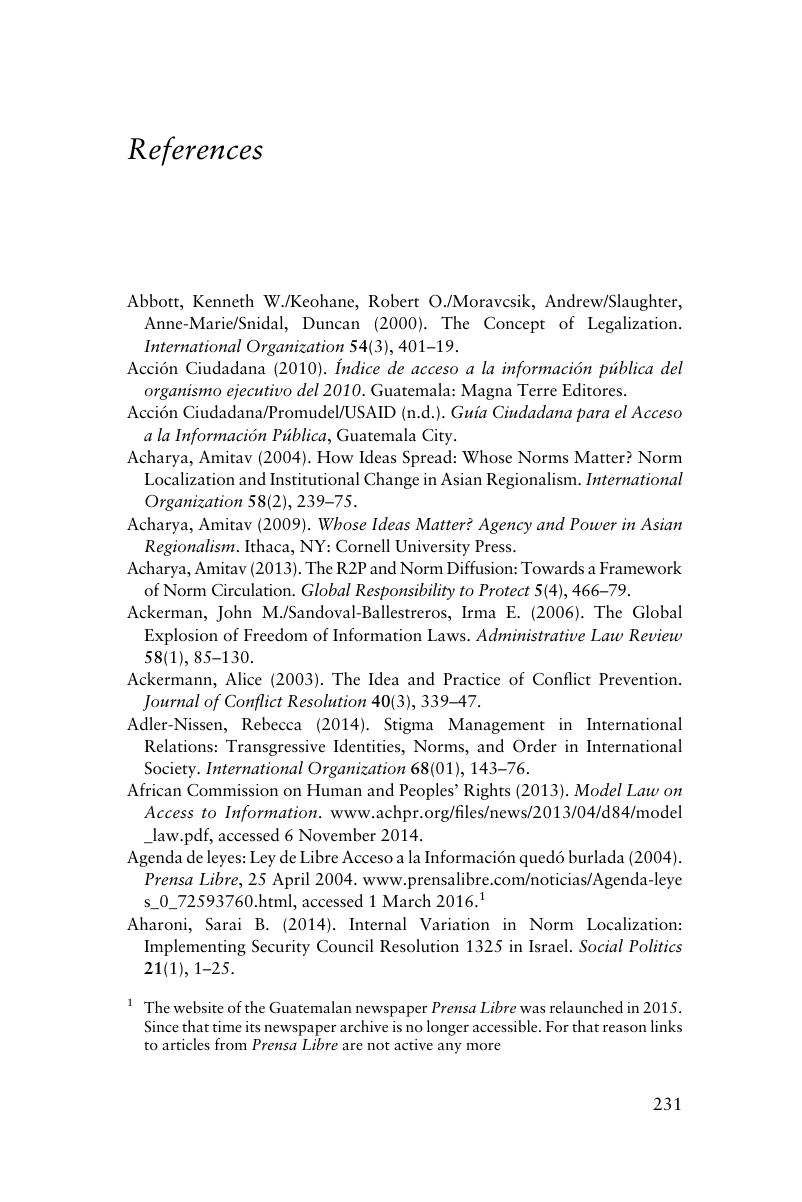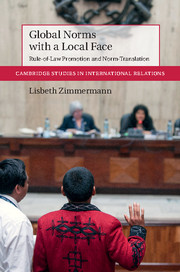Book contents
- Global Norms with a Local Face
- Cambridge Studies in International Relations: 143
- Global Norms with a Local Face
- Copyright page
- Contents
- Figures
- Tables
- Abbreviations
- Acknowledgements
- 1 Introduction: Between Global Norms and Local Translation
- 2 To Socialize or to Localize?
- 3 Guatemala and the International Community
- 4 Translating Children’s Rights
- 5 Translating a Right to Access Information
- 6 Translating Scripts for Rule-of-Law Commissions
- 7 Towards an Interactive Perspective on Norm Translation
- 8 Balancing Global Norms and Local Faces
- Book part
- References
- Index
- Cambridge Studies in International Relations
- References
References
Published online by Cambridge University Press: 20 July 2017
- Global Norms with a Local Face
- Cambridge Studies in International Relations: 143
- Global Norms with a Local Face
- Copyright page
- Contents
- Figures
- Tables
- Abbreviations
- Acknowledgements
- 1 Introduction: Between Global Norms and Local Translation
- 2 To Socialize or to Localize?
- 3 Guatemala and the International Community
- 4 Translating Children’s Rights
- 5 Translating a Right to Access Information
- 6 Translating Scripts for Rule-of-Law Commissions
- 7 Towards an Interactive Perspective on Norm Translation
- 8 Balancing Global Norms and Local Faces
- Book part
- References
- Index
- Cambridge Studies in International Relations
- References
Summary

- Type
- Chapter
- Information
- Global Norms with a Local FaceRule-of-Law Promotion and Norm Translation, pp. 231 - 283Publisher: Cambridge University PressPrint publication year: 2017

